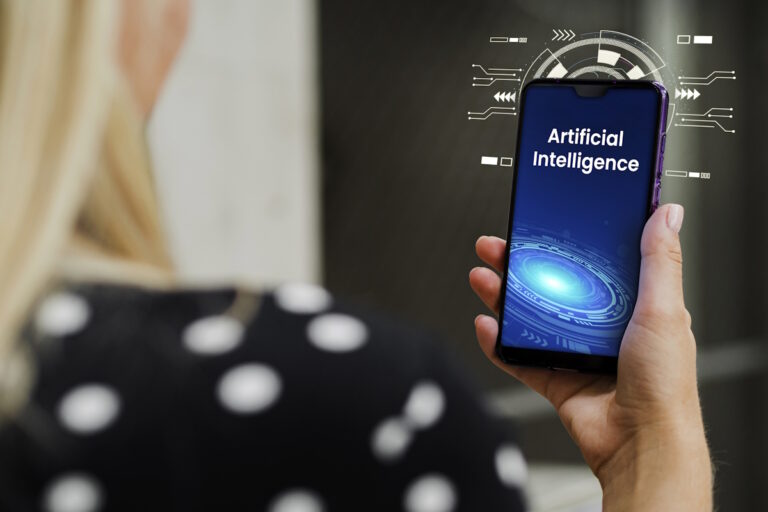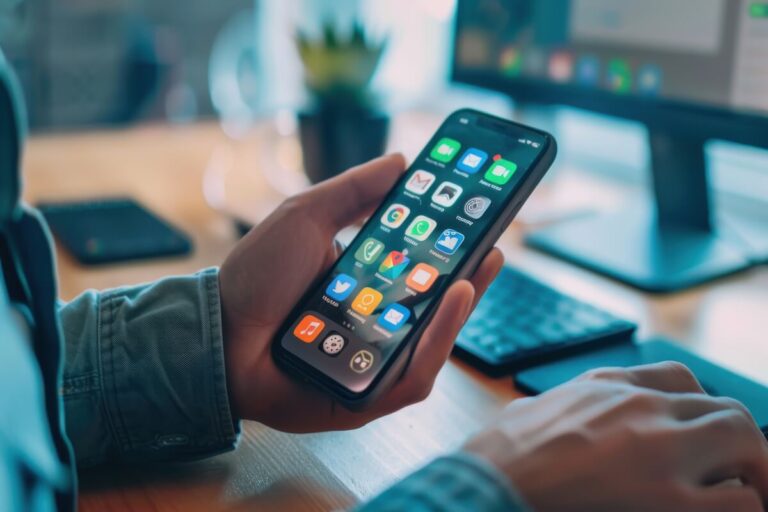Voice technology has been rapidly evolving in recent years, especially within the realm of iOS apps. With the introduction of Siri by Apple, users have become accustomed to interacting with their devices using their voice. As a result, developers in Palo Alto and beyond have been incorporating voice technology into their iOS apps to enhance user experience and stay ahead of the curve.
The Rise of Voice Assistants
One of the most significant trends in voice technology within iOS apps is the rise of voice assistants. These virtual assistants, such as Siri, Alexa, and Google Assistant, have become integral parts of our daily lives. Users can simply speak commands or ask questions, and these assistants will provide the desired information or perform the requested tasks.
Voice assistants offer a hands-free interaction experience, allowing users to multitask or access information quickly. They have become valuable tools for managing daily tasks, setting reminders, and even controlling smart home devices. The convenience of voice assistants has led to increased adoption and integration within iOS apps.
The continuous advancements in artificial intelligence and natural language processing have enhanced the capabilities of voice assistants. They can now understand context, learn user preferences, and provide more personalized responses. As developers continue to improve these technologies, voice assistants will play an even more significant role in shaping the future of iOS apps.
Benefits of Voice Technology in iOS Apps
- Enhanced User Experience: Voice technology allows users to interact with iOS apps in a more natural and intuitive way, eliminating the need for typing or tapping on small screens. This leads to a smoother and more engaging user experience.
- Increased Accessibility: Voice technology makes iOS apps more accessible to individuals with disabilities or those who prefer hands-free interactions. It ensures that a wider range of users can benefit from the functionalities of the app.
- Efficiency: Voice commands can be executed much faster than manual inputs, increasing the efficiency of using iOS apps. This saves time and effort for users, making tasks more streamlined and productive.
- Personalization: Voice assistants can learn user preferences and provide personalized recommendations, enhancing the overall user experience. This level of personalization creates a more tailored and enjoyable interaction for users.
Voice technology not only improves user experience but also opens up new possibilities for developers to create innovative features and functionalities within their iOS apps. By leveraging voice technology, developers can differentiate their apps in a crowded market and attract a broader user base.
Applications of Voice Technology in iOS Apps
Developers in Palo Alto have been exploring various applications of voice technology within iOS apps, including:
- Virtual Assistants: Many iOS apps now include virtual assistants that can help users with tasks such as setting reminders, sending messages, or providing information. These virtual assistants act as personal helpers, catering to the needs and preferences of users.
- Voice Search: Users can now search for specific information within iOS apps using their voice, making the process quicker and more convenient. Voice search simplifies navigation and enhances the overall user experience.
- Voice Commands: iOS apps can be controlled entirely through voice commands, allowing users to navigate through the app, play music, or make purchases without touching the screen. This hands-free interaction adds a new level of convenience and accessibility for users.
The integration of voice technology in various aspects of iOS apps showcases its versatility and adaptability. From simplifying tasks to improving accessibility, voice technology continues to redefine how users interact with their devices and apps.
Challenges and Considerations
While voice technology has many benefits, there are also challenges and considerations that developers in Palo Alto need to keep in mind:
- Privacy Concerns: Voice technology raises privacy concerns, as users may be hesitant to share personal information or have their conversations recorded. Developers must prioritize data security and ensure transparent policies to protect user privacy.
- Accuracy: Voice assistants may not always understand commands correctly, leading to frustration among users. Continuous improvements in natural language processing are essential to enhance accuracy and reduce errors.
- Integration: Integrating voice technology into iOS apps requires careful planning and development to ensure a seamless user experience. Developers need to consider user feedback and iterate on their implementations to optimize performance.
- Compatibility: Voice technology may not be compatible with all iOS devices or operating systems, limiting its reach to a certain user base. Developers should prioritize compatibility testing to ensure a consistent experience across different devices.
By addressing these challenges and considerations, developers can mitigate potential issues and deliver a more robust and reliable voice technology experience within their iOS apps.
Future Trends in Voice Technology
Looking ahead, developers in Palo Alto can expect to see the following trends in voice technology within iOS apps:
- Improved Natural Language Processing: Voice assistants will become better at understanding natural language and context, leading to more accurate responses. This advancement will enhance the conversational capabilities of voice assistants, making interactions more seamless and intuitive.
- Multi-language Support: Voice technology will support multiple languages, making iOS apps accessible to a global audience. This expansion of language capabilities will cater to diverse user bases and enhance the inclusivity of voice technology.
- Integration with IoT Devices: Voice assistants will be integrated with IoT devices, allowing users to control their smart home devices using voice commands. This integration will create a more interconnected and automated ecosystem for users to interact with their devices.
- Enhanced Security Features: Developers will implement stronger security measures to protect user data and ensure privacy when using voice technology. Building trust with users through robust security features will be essential for the continued adoption of voice technology.
In conclusion, voice technology is rapidly evolving within iOS apps, and developers in Palo Alto have been at the forefront of this innovation. By incorporating voice technology into their apps, developers can enhance user experience, increase accessibility, and stay ahead of the competition. As the technology continues to advance, we can expect to see even more exciting developments in the realm of voice technology within iOS apps. Contact us today to start building your iOS app and be a part of this exciting revolution. The possibilities are endless, and the impact is immeasurable. So let’s take on this challenge together!
FAQs:
1. What are some benefits of incorporating voice technology into iOS apps?
Some benefits include enhanced user experience, increased accessibility for individuals with disabilities, improved efficiency, and personalization through personalized recommendations.
2. What are some common applications of voice technology in iOS apps?
Common applications include virtual assistants for tasks like setting reminders and sending messages, voice search for quick information retrieval, and voice commands for controlling the app hands-free.
3. What is one significant trend in voice technology within iOS apps?
The rise of voice assistants like Siri, Alexa, and Google Assistant is a significant trend, allowing users to interact with their devices using voice commands.
4. What challenges do developers in Palo Alto need to consider when incorporating voice technology into iOS apps?
Developers need to consider privacy concerns related to voice technology, as users may be hesitant to share personal information or have their conversations recorded.
4. What challenges do developers in Palo Alto need to consider when incorporating voice technology into iOS apps?
Developers need to consider privacy concerns related to voice technology, as users may be hesitant to share personal information or have their conversations recorded.










